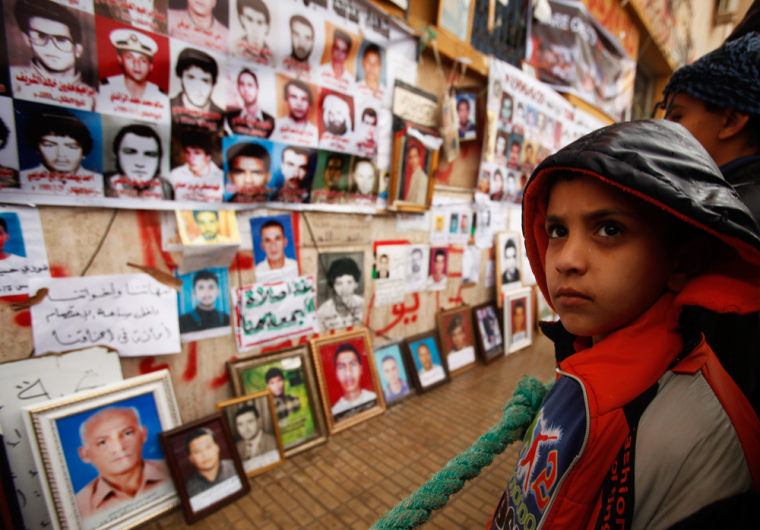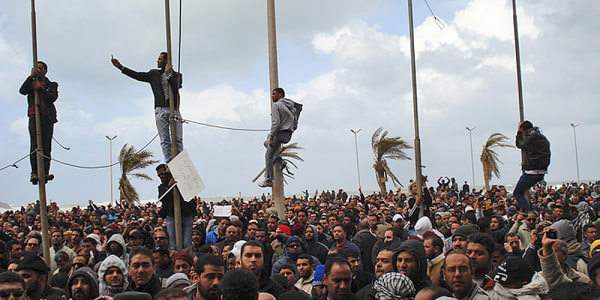“Please escape, they are going to kill us.”
Those were the last words that Ramadan Elosta said he heard from his youngest brother, Salem, a teacher and father of three, as gunmen loyal to embattled Libyan leader Moammar Gadhafi led him away. Days later, his brother’s battered body was found at the morgue.
“He is killed because he is just protesting against Gadhafi,” Elosta said in an emotional telephone interview with msnbc.com from Tunisia, recalling his brother’s final words to him in a cell phone call. “We are calling the whole world to listen to us. We are dying; we are dying, while the world is watching.”
Salem is one of an unknown number of people believed to have been kidnapped by Gadhafi supporters in Libya since the uprising began in February. In some cases, relatives saw their loved ones arrested, while in others, the victims simply vanished. Some bodies were found, while the fate of others remains unknown.
While some may have fled the fighting, witnesses, experts and human rights groups say the frequency of the reports and the fact that kidnappings have long been used by Gadhafi to silence his critics suggest that an abduction campaign is occurring.
Determining the number of Libyans abducted by the Gadhafi gangs is impossible in the midst of the heavy fighting occurring in many parts of the country. But interviews with human rights groups and local residents indicate that the number is in the hundreds in the capital of Tripoli and the country’s second- and third-largest cities — Benghazi and Misrata — alone.
Some victims were protesters, some weren't
Many of those abducted have been active in the protests or fighting aiming to topple Gadhafi, but others had no role in the demonstrations, and the intent of the kidnappings appears to be cowing the populace, according to accounts obtained by msnbc.com.
“I have friends who don’t stay at their home. They are moving all the time, from one home to another,” said Ahmed El-Gasir, of the Libya-focused Human Rights Solidarity organization. “They cannot stay in their places overnight for fear of being picked up.”
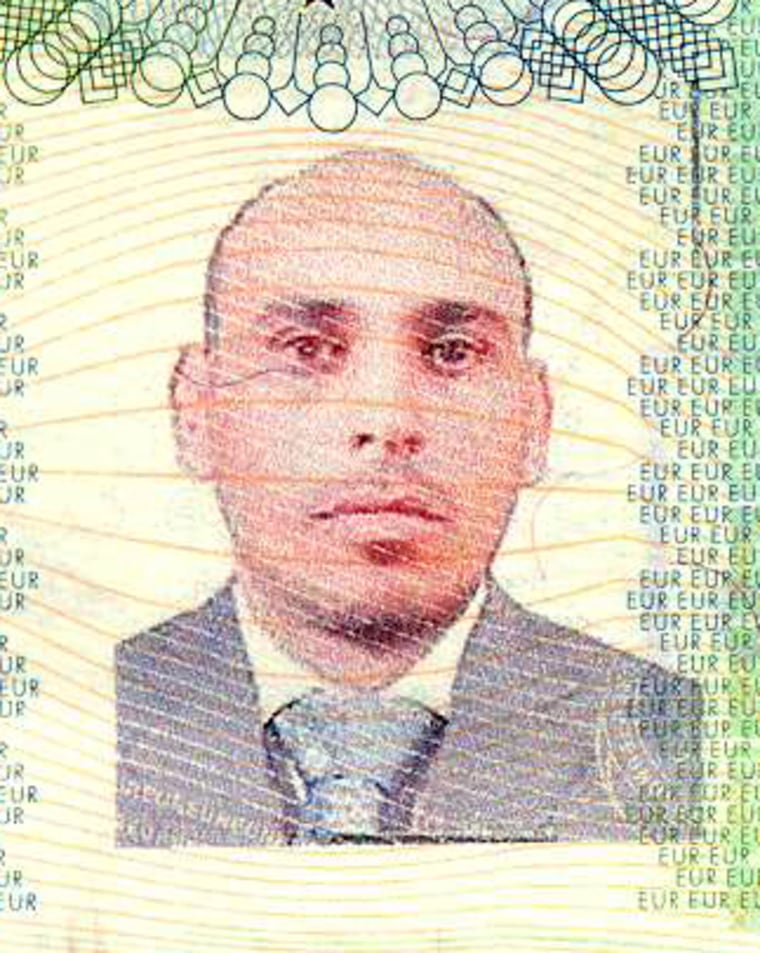
“The way they treat people nowadays, there is very little hope” for those who have been taken, he added, “but we still hope anyway.”
Those hopes are visible in Benghazi, where fliers for missing teenage boys are posted around the city. But so is the loved ones’ desperation, as family members search the morgues in Tripoli.
In the last week to 10 days, people have become more fearful, especially in Tripoli and cities surrounded by Gadhafi’s forces, said Heba Morayef, Libya researcher for Human Rights Watch.
“A lot of the people who were sending out information were then targeted, and people started to maintain more of a lower profile or to change their e-mail accounts or to request that people stop speaking to them,” she said. “That’s when we also started — through some of the Libyan organizations I work with — getting increasing numbers of reports of arrests.”
“It’s very strategic. It’s not random and it’s very sort of brutal,” she said of the kidnappings. “In typical fashion, they tend to round up and arrest on a very broad scale to intimidate, and I think this is specifically what’s been happening in Tripoli.”
Slideshow 81 photos
Libya's uprising against Gadhafi
Elosta, the Libyan whose brother was killed after being abducted, had encouraged others to join protests against the regime via social media. But he said his brother had not participated in the demonstrations until Feb. 25, when they joined a protest after the Friday prayers at their mosque in Tripoli.
“We are peaceful people. We have no arms, we have nothing,” he said. But soon they were shot at and ran off, hiding near their home. “We thought it finished that day. We were continuing to talk through the Facebook, we talk through the telephones and everything. The second day, we were surprised that they start to collect the people who were demonstrating.”
Elosta, a 48-year-old businessman, recalled seeing a security car outside their mosque on the day of the protest. He believes a fellow demonstrator was caught amid the ensuing violence, and tortured for the names of other protesters. Two days later, Salem, 36, was surrounded by gunmen in front of his brother's home and taken away.
'They have been taken from their houses'
“There are a lot of families who have lost their kids,” Elosta said, noting that a friend’s 21-year-old cousin had been abducted and killed in the same way as Salem — but his body was found thrown on the street. “They have been taken from their houses, kidnapped and they have been killed … as simple as that.”
Ahmed Sewelhi, a psychiatrist living in Britain, said his father and three brothers were grabbed in two separate abductions in Tripoli on Feb. 28. Two of his brothers were taken by Gadhafi’s men, a witness told him, while his father and another brother were taken by mercenaries and people in uniforms, he said.
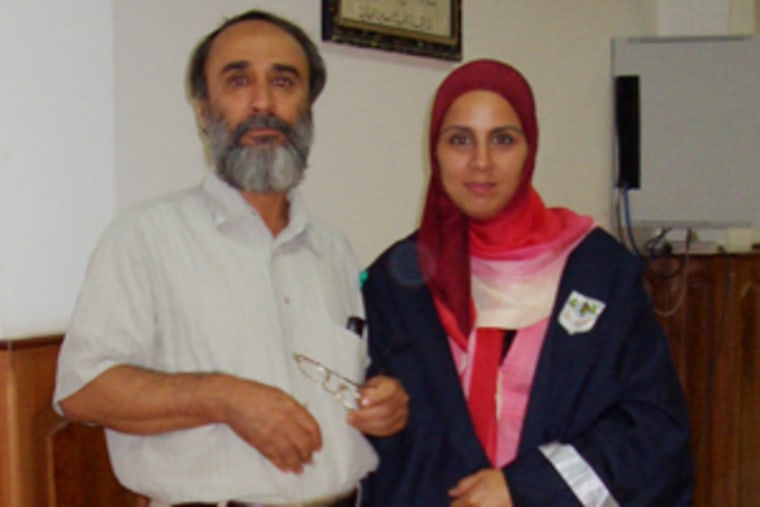
They had been participating in anti-Gadhafi protests, and his father, Abdurrahman, a 65-year-old retired engineer, had spoken out against Gadhafi on Arabic television, Sewelhi said.
One brother, 19-year-old Mohammed, was freed Sunday night, he said.
“He was in good condition and he said that he saw my family (father and brothers) a couple of days or something before he was released and they were OK,” he said in a telephone interview with msnbc.com from London.
Asked if the family was given an explanation for why Mohammed was released, he replied, “No. Nobody is even acknowledging that he was either released or kidnapped in the first place. That’s the way it works in Libya. Gadhafi doesn’t explain anything; neither do his thugs.”
“We just have to wait. … It is a nightmare, a very long nightmare.”
Libyan-Canadian businessman Ahmed Shebani, 41, said he had to carry a green flag and a picture of Gadhafi in Tripoli during the unrest because failure to display such paraphernalia would have made him a target.
“Either you’re going to get picked up or you’re going to get shot at,” he said, noting he was not a Gadhafi supporter.
Random round-ups at Tripoli airport
He described a harrowing scene at Tripoli’s international airport when he was being evacuated on Feb. 24 with other Canadians. A semi-trailer pulled up while they were waiting outside.
“It had little cutouts, just a small little breathing hole-type cutouts in it. All you could see was fingers and eyes in these holes. They were trying to peek out,” he said. “They were rounding people up indiscriminately from the crowd at the airport and tossing them in the back of this truck. … This was in front of us and they were telling everybody not to take pictures.”
In Misrata, about 125 miles east of Tripoli on the Mediterranean coast, 61 people — most of them older teenage boys — have been abducted, according to a resident keeping a tally of the missing, who spoke on condition of anonymity out of fear for his safety.
The majority of them were shoved into vehicles and taken to unknown destinations, where they were being held either “as hostages, so they will be sort of a bargaining chip for the pro-Gadhafi supporters to manipulate some of the families of those individuals, or they could also be used for propaganda,” he said.
Many of those kidnapped were leaders of the uprising in Misrata, who were fingered by Gadhafi supporters. They in turn passed on information to militia and mercenary groups, he said.
“Some people have been caught red-handed … that’s why we know the profile of the people who do this,” he said.
Yasmeen Ar-Rayani, the North America spokeswoman for Libyan League of Human Rights, said her organization also had received many reports of mercenaries and security forces snatching people.
“A lot of the reports that came out of Tripoli when protests first started there — people were driving around and going into houses and taking people out without any explanation and throwing them into cars,” she said. “They (Gadhafi supporters) weren’t wearing uniforms and they weren’t in marked cars. This practice doesn’t only target the people who are being kidnapped. … It’s about intimidating other citizens from participating and discouraging them from participating in this uprising.”
Mothers searching for missing sons
In Benghazi, a number of boys between the ages of 12 and 16 have disappeared, according to one mother who joined a protest last Friday in front of the local prosecutor’s office to ask for help.
The woman, who declined to give her name, said her son, 16-year-old Sami Nagi Abdulsalam, disappeared while playing with other children in the streets of Benghazi around Feb. 18. She said Sami was not involved in the anti-Gadhafi demonstrations in the city and she said they have no idea who snatched him and his friends.
She said she and other mothers searched the city’s hospitals, posted fliers and made announcements on the radio and television stations.
"We all went to the prosecutor’s office," she said. "We prayed to God for their safe return.”
Morayef, of Human Rights Watch, said she had spoken with a 19-year-old boy who was arrested in Benghazi and detained inside military barracks for about 30 hours before being released as the city fell to the protesters on Feb. 20.
“He just said that he was picked up completely randomly … they may have thought he was going to protest,” she said. “He said there were lots of them, shoved into a room with more than 30 people. He didn’t really understand” why he was picked up.
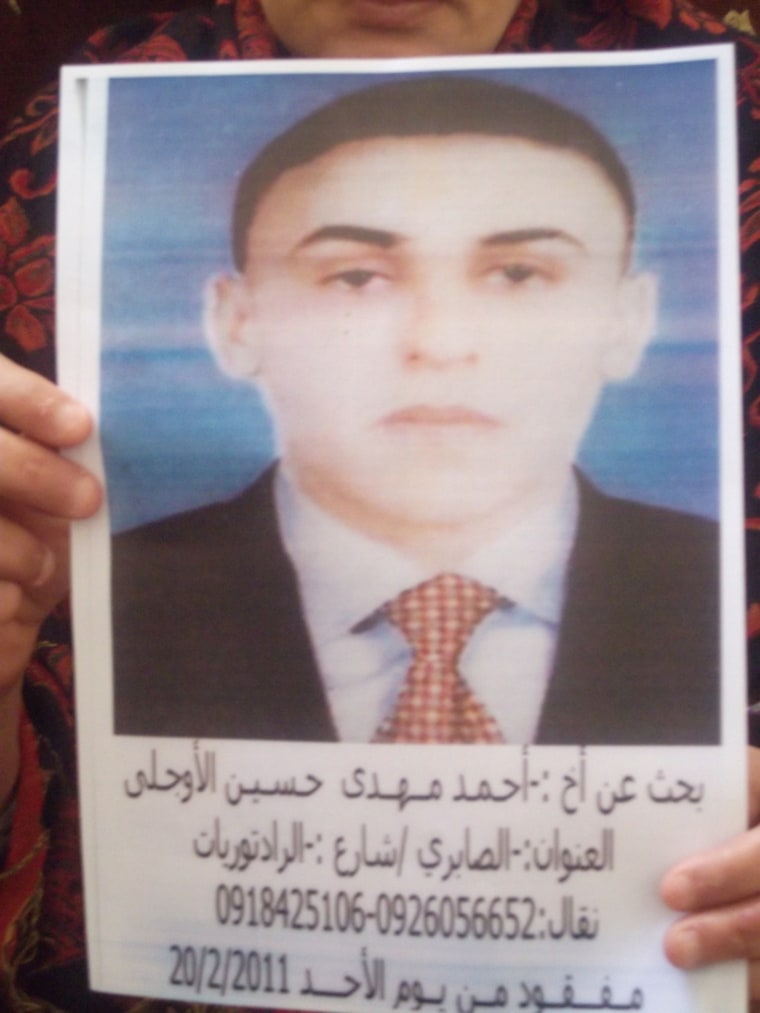
Donatella Rovera, head of the Amnesty International team in Libya, said she has spoken with some families who told her their loved ones simply never came home, while others watched security forces take them away. She knows of four arrests in Benghazi but believes that in the west they have been picking up people on a “wider scale.”
“There are great concerns for anybody who was indeed taken and is now in detention in areas controlled by Libyan security forces,” she said. “The hopes of those people being released in the immediate future by Gadhafi’s forces … doesn’t look very hopeful.”
Abductions said to be a familiar tactic
The uprising that sparked the recent wave of abductions may have been sparked in part by Gadhafi’s use of such hard-ball tactics earlier in his four-decade reign.
Among the early participants in the protests, said El-Gasir, the Human Rights Solidarity representative, were families who lost loved ones in the 1996 massacre at Abu Salim prison, where an estimated 1,200 inmates were killed.
The killings began when prisoners in one block seized a guard bringing them food and hundreds of others escaped from their cells. The prisoners were upset over poor living conditions and limitations on family visits, according to a report.
Most of those killed in the two-day riot were political prisoners, many of whom had been abducted and imprisoned between 1989 and 1995, said Morayef.
“Disappearance has been a huge, huge issue in Libya — a long-term practice, a very abusive one,” she said. “The only way that missing/disappearances were resolved was (after the) end of 2008, when the Libyan government started issuing death certificates and then, all of the sudden, for the first time, they could have funerals — 13 years after the event,” she said.
“One of the tragedies is that the families for 13 years had waited or sought information. Some of them told me that they used to drive 13 hours to Tripoli, taking big sacks of food and clothing to leave outside the prison gates and they’d do this three times a year because that’s when you were allowed to hand in stuff,” she said. “And all of this time, they were actually dead.”
Ar-Rayani, of the Libyan League of Human Rights, said that based on Gadhafi’s track record, it’s “very likely” that those who have disappeared during the current unrest have been killed or were being tortured for more information about the protests, she said.
“As a lot of cities have been liberated from government control, evidence of torture being used by the Libyan government has been uncovered, including an underground prison that was found underneath the military barracks in Benghazi,” she said. “If this was common practice for the regime when they weren't facing an uprising of this scale, we can be fairly confident that they are pursuing this tactic with renewed vigor at a time like this.”
When Elosta’s brother Salem called him for the last time to warn him, he knew he had to flee Libya. Though outside the country, he is still working to free Libya of Gadhafi. He said he does not regret attending that Friday protest with Salem, but he would regret his brother’s death if Gadhafi is not forced out.
“A dictatorship like this — killing our future, stealing our wealth, our resources of oil … and now he is killing our lives,” he said. “If this regime disappears and we have a free Libya, then we will be very proud we have done that, and I will be very proud of my brother that he has died for something very important for my country.
“The time now is not for regrets.”
